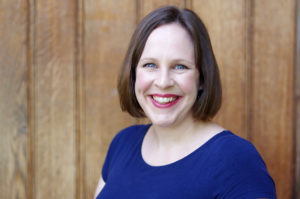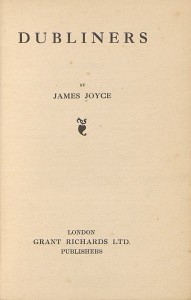What would a literary radio programme sound like if it engaged a text using some, if not all, of the approaches commonly found in academic literary criticism? How might that even be possible, whilst still meeting the main requirement of radio – to tell a good story?
The answer is turn it into a detective story – which, essentially, all good research is. In each episode of my new documentary series for BBC Radio 3: Literary Pursuits, I start with a textual mystery that I want to solve. Each of these mysteries sets me off on a quest to find out the story behind the story, to follow the clues to discover how great works of literature were written. And of course, those clues are thematic, stylistic, biographical, historical, material, and more – all of the diverse literary critical methodologies found in academic scholarship become my investigative tools, and all are needed to solve the mystery.
Episode 7, 30 December 2018: Victor Hugo, Literary Pursuits
Featured on BBC Radio 4 Pick of the Week, 6 January 2019.
Description from BBC website: The story behind the writing of Victor Hugo’s classic novel is one of adultery, revolution, political intrigue and exile. It was begun in Paris, when Hugo was part of the political and literary establishment, but the revolution of 1848 led to Hugo falling foul of the authorities and he had to flee for his life in disguise. He was reunited with his precious manuscript days later when it was brought to him in Brussels by his long-time mistress Juilette Drouet. Eventually ending up in Guernsey, it was twelve years later that Hugo finally took his manuscript out and finished it. But the events of the intervening years caused Hugo to make huge additions to the manuscript, transforming it from a novel into a masterpiece.
Producer: Sara Conkey
Episode 6, 25 February 2018: Robert Louis Stevenson, Strange Case of Dr Jekyll and Mr Hyde
Description from BBC website: Sarah Dillon discovers the story behind the writing of R.L. Stevenson’s horror classic ‘Strange Case of Dr Jekyll and Mr Hyde.’ Written at speed in Bournemouth while Stevenson was recuperating from a seriousillness, this is the book that finally made his name and fortune. He later said it was inspired by a dream, and his wife, Fanny claims that it was her influence that caused him to burn the first draft and re-write it in three days. But interviews with author and broadcaster Sir Christopher Frayling, biographer Claire Harman, author and journalist Jeremy Hodges and Professor Richard Dury reveal that the myth of the books composition can be challenged. Sarah Dillon discovers there are many other possible influences on the novel, including the death of a friend by alcoholic poisoning; a contemporary investigative journalist report who exposed child prostitution; a real life murderer who Stevenson knew in Edinburgh and a wardrobe with a disturbing history from his childhood bedroom.
Producer: Sara Conkey
Episode 5, 9 July 2017: E. M. Forster, Maurice
Description from the BBC Website: Forster’s gay love story was a forbidden book. Written in 1913, inspired by a touch on the buttocks, ‘Maurice’ was only published in 1971 after Forster died. Nevertheless, for almost sixty years, it was a secret manuscript, clandestinely circulating among those Forster trusted. They included Lytton Strachey, Leonard Woolf, Siegfried Sassoon and Christopher Isherwood. Isherwood’s comments especially prompted Forster to re-write, adding a sex scene and altering the ending. But for years he refused Isherwood’s pressure to publish, until finally acquiescing to a posthumous publication, and sending the typescript by trusted couriers from Cambridge to America. Biographer Wendy Moffat talks about how she pieced together the details of this journey, scholar Philip Gardner looks at the manuscript changes and writer Peter Parker discusses Isherwood’s influence on the finished novel.
Producer: Sara Conkey
Episode 4, 5 June 2016: James Joyce, Dubliners
Description from the BBC website: James Joyce went to extraordinary lengths to publish his first book, Dubliners. He personally rescued the manuscript from fire, lost a major standoff with his publishers over revisions, orchestrated a press campaign, wrote a despairing letter to the king of England and left Ireland for good. Sarah Dillon recounts the story, investigates the manuscripts and sees how Joyce’s astonishing literary career nearly fell at the first hurdle.
Producer: James Cook
Episode 3, 29 May 2016: Jane Austen, Persuasion
Selected for ‘Pick of the Day’s Radio’, The Daily Mail, 29th May 2016 – four star review.
Selected for ‘Today’s Picks’, The Times, 29th May 2016.
Description from the BBC Website: Sarah Dillon discovers how Jane Austen’s last completed novel, ‘Persuasion’ was written. The novel has sometimes been viewed as Austen’s valedictory novel – written while she was suffering with her final illness. But Sarah Dillon uncovers a more complex story: dates of revisions on the manuscripts in the British Library confirm her sister’s story that Persuasion was completed almost a year before Austen’s death, but it was only published posthumously. By talking to Dr Kathryn Sutherland from St Anne’s College, Oxford, Paula Byrne, author of ‘The Real Jane Austen, A Life In Small Things’ and writer Margaret Drabble, we go behind the scant details of Austen’s life and uncover reasons for the delay: her last illness; the possibly personal inspirations for the plot of the novel; the state of her finances; her fascinating creative process; and the radical reaches and determination of her literary ambitions.
Producer: Sara Conkey
Episode 2, 17 January 2016: Jean Rhys, Wide Sargasso Sea
Description from the BBC Website: In a new series, Sarah Dillon is a literary detective, hunting down the story behind the story of the writing of great works. Jean Rhys was the author of four novels in the late 20s and 30s when she disappeared off the literary map and was presumed dead. She spectacularly re-appeared with the publication of Wide Sargasso Sea, telling the back story of the first Mrs Rochester from Charlotte Bronte’s Jane Eyre. Published in 1966 when the author was in her 70s, the novel became an instant classic. Sarah Dillon goes on a journey to find out why there was a 27 year gap between novels: she travels to the British Library to look at Rhy’s original notebooks; talks to Carole Angier, Jean’s biographer; and goes to meet Jean’s publisher Diana Athill. The struggle to bring the book to completion touches on poverty, death and a passionate desire for perfection.
Producer: Sara Conkey
Episode 1, 10 January 2016: Charles Dickens, Great Expectations
Selected as ‘Today’s Choice’, The Radio Times, 10 January 2016.
Selected as ‘Radio Choice’, The Times, 10 January 2016.
Selected as ‘Pick of the Day’s Radio’, The Daily Mail, 10th January 2016 – four star review.
Selected for The Week’s Best New Radio, The Guardian, 9 January 2016.
Description from the BBC Website: In a new series, Sarah Dillon is a literary detective on the hunt for the story behind the story of how great works were written. She begins with Dickens’s masterpiece, Great Expectations. Begun in 1860, Sarah asks why Dickens was writing it so fast – he finished it in nine and a half months – and why he famously changed the ending. The answers take her on a journey to Dickens’s home in Gads Hill in Kent, the office of his magazine All The Year Round in Covent Garden and on a night-walk around the streets of London, where Dickens drew on the energy of the city as inspiration. Talking to Dickens biographer Michael Slater and scholars Juliet John from Royal Holloway and John Drew from the University of Buckingham, Sarah pieces together how Dickens’s most private life is played out in the novel. And she uncovers the fascinating events behind the writing of it – including an urgent necessity for money, an overwhelming passion, and a relationship that goes to the heart of the deepest psychological needs that Dickens had.
Producer: Sara Conkey





